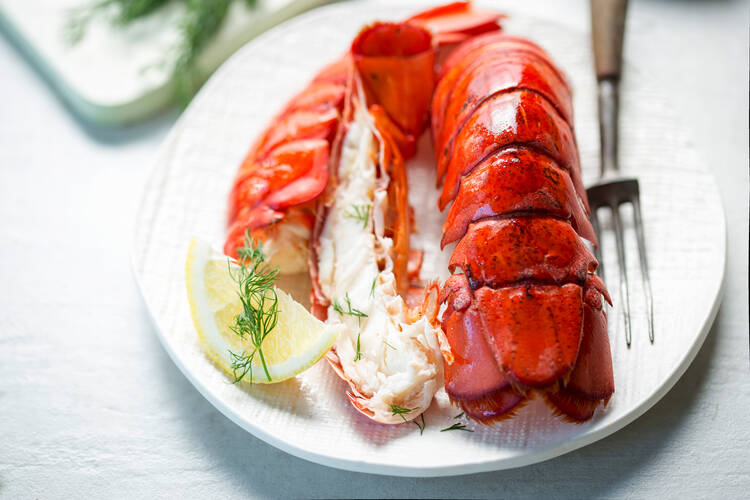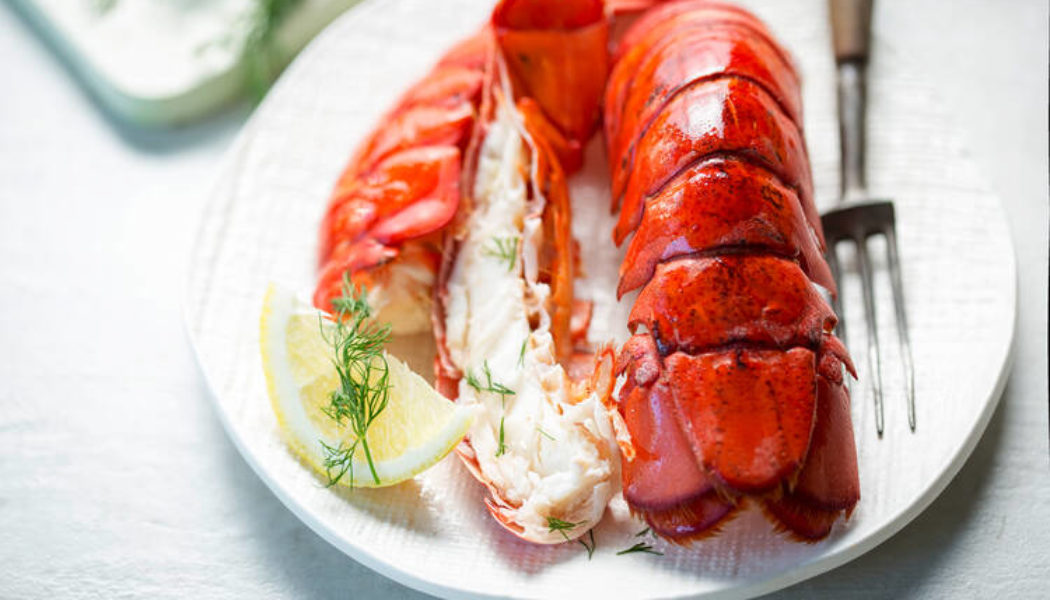
If you ask most Catholics why we eat fish on Fridays during Lent, you will likely hear that it’s meant to be a kind of sacrifice. It’s kind of funny if you think about it: Some of Jesus’ closest pals were fishermen. Fish even became a symbol used by the early Christians to safely communicate with one another and signal meeting places. Its place as a Catholic dinner staple seems more like a statement of identity—we’re Catholics; this is what we do—than a hardship.
As authors Brian Fagan and Michael Foley have shared, the actual history of our tradition of eating fish on Fridays is pretty crazy and involves the Vikings, King Henry VIII and, eventually, the Filet-O-Fish. But a main component of the practice for most Catholics has long been that a meal of fish displaces the more decadent options meat provides. It represents a form of asceticism or mortification. It’s “a simple meal.”
With that in mind, can we talk about our choices for Friday evening meals this Lent? Because over the years I feel like I’ve seen—and been a part of—quite a few Friday Lenten dinners that were every bit as fancy as any non-Lenten meal I have ever eaten. Kingfish ceviche tacos, coconut macadamia-crusted salmon steaks, Lobster Thermidor. Hey, it’s not meat!
Over the years I feel like I’ve seen—and been a part of—quite a few Friday Lenten dinners that were every bit as fancy as any non-Lenten meal I have ever eaten.
I know of nothing in the literature about Lent that says food on Fridays shouldn’t taste good. Nobody wants that. But when our Lenten fasts start to resemble this recipe site’s announcement that “Fish on Good Friday doesn’t have to be a tired tradition. Indulge your guests (or treat yourself) to a fishy dish that’s equal parts impressive and delicious,” I think we might be headed in the wrong direction.
So, straight talk, Catholics: Do we actually believe in the idea of having fish on Fridays as a form of self-mortification or solidarity with those who have less? Or do we look at it more like paying our taxes? Yes we’ll do it, but only by giving up the least possible amount.
A bigger question undergirds these others: Who are our Lenten practices for? Do we do things like avoiding meat on Fridays or Lenten fasting because we were told we have to and/or because we think God expects us to? Or do we actually believe there is something in this practice that could actually help us or others?
If we are doing these things just because someone said we have to, and we’re not getting anything out of it beyond that, one could reasonably ask whether they are worth doing. God certainly didn’t give us brains, free will and the capacity for prayer and self-reflection so that we would just blindly do whatever we’re told. And to paraphrase my old novice director: If fish sticks on Fridays aren’t helping you find God, maybe you need to try something else.
If fish sticks on Fridays aren’t helping you find God, maybe you need to try something else.
But another option might be to actively experiment with the Friday fast itself and see if there is actually something in there waiting for us. Here’s what I mean by experiment: What if on Fridays this Lent we take our time eating our meatless dinner, sit at the table together rather than before the TV and enjoy one another’s company and the actual taste of what we’re eating? How many times have I gotten to the end of a meal and realized I barely took the time to notice its flavors? Whether it’s cheese pizza or fish and chips, God gave us this gift—and the gift of each other. Let’s savor that.
Or maybe we spend a Friday meal time with a prayer for people we know who have less or are suffering right now or even imagine ourselves having this meal with them. This probably works a lot better on your own than in a group. (Although I can tell you from personal experience that just eating a meal in silence with others—no phones, no radio—can also be surprisingly meaningful.)
Or maybe we take the money we save from not indulging in fancy fish on Fridays—our Lenten Legal Seafood fund, as it were—and donate it to a different charity every week.
We also could try other experiments around our Friday fast—cook together; make it a family night or a night we invite others over for a meal; volunteer at a soup kitchen—or try each of these different practices on subsequent Fridays and see what works.
The point is, giving up meat on Fridays does not have to be about just fulfilling the letter of the law; it could be a doorway into something positive for ourselves or others. It could be just that moment to breathe and reconnect with God that many of us so often wish we had.
When it comes down to it, Lenten expressions of our faith probably shouldn’t look like Swiss tax shelters or banquets Henry VIII would be happy to attend. But our purpose in Lent isn’t to do things just because we have to, but because they can offer some meaning and growth in our lives. “Finding God through the Local Fish Fry” may not be your cup of tea (or kettle of fish). But then again it might be the perfect adventure to try this Lent.
Join Our Telegram Group : Salvation & Prosperity









